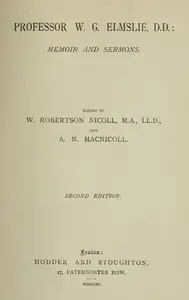"Brief Reflections relative to the Emigrant French Clergy" by Fanny Burney is a poignant humanitarian appeal written in the late 18th century. This work falls under the category of a social and political reflection, focusing on the plight of the French clergy who fled to Britain during the tumultuous period of the French Revolution. The text advocates for support and aid from the women of Great Britain, highlighting the moral imperative of compassion and charity amidst the crises of displacement and suffering experienced by these exiled figures. In the book, Burney passionately argues for the urgent need to assist the expatriated French clergy, emphasizing their character as virtuous victims of persecution rather than criminals. She juxtaposes the tragic events of the Revolution with the noble virtues of the clergy, imploring British women to engage actively in philanthropy to help preserve these men from destitution. The narrative blends emotional appeal with rational discourse, vividly recounting the dangers and hardships faced by the clergy in their quest for refuge. Burney calls upon women to exercise their benevolence, reminding them of their shared humanity with those suffering, and urging them to contribute to a charitable endeavor that honors both faith and compassion. (This is an automatically generated summary.)

Brief Reflections relative to the Emigrant French Clergy
By Fanny Burney
"Brief Reflections relative to the Emigrant French Clergy" by Fanny Burney is a poignant humanitarian appeal written in the late 18th century. This wo...
Frances Burney, also known as Fanny Burney and later Madame d'Arblay, was an English satirical novelist, diarist and playwright. In 1786–1790 she held the post of "Keeper of the Robes" to Charlotte of Mecklenburg-Strelitz, George III's queen. In 1793, aged 41, she married a French exile, General Alexandre d'Arblay. After a long writing career and wartime travels that stranded her in France for over a decade, she settled in Bath, England, where she died on 6 January 1840. The first of her four novels, Evelina (1778), was the most successful and remains her most highly regarded, followed by Cecilia (1782). Most of her stage plays were not performed in her lifetime. She wrote a memoir of her father (1832) and many letters and journals that have been gradually published since 1889, forty-nine years after her death.


















